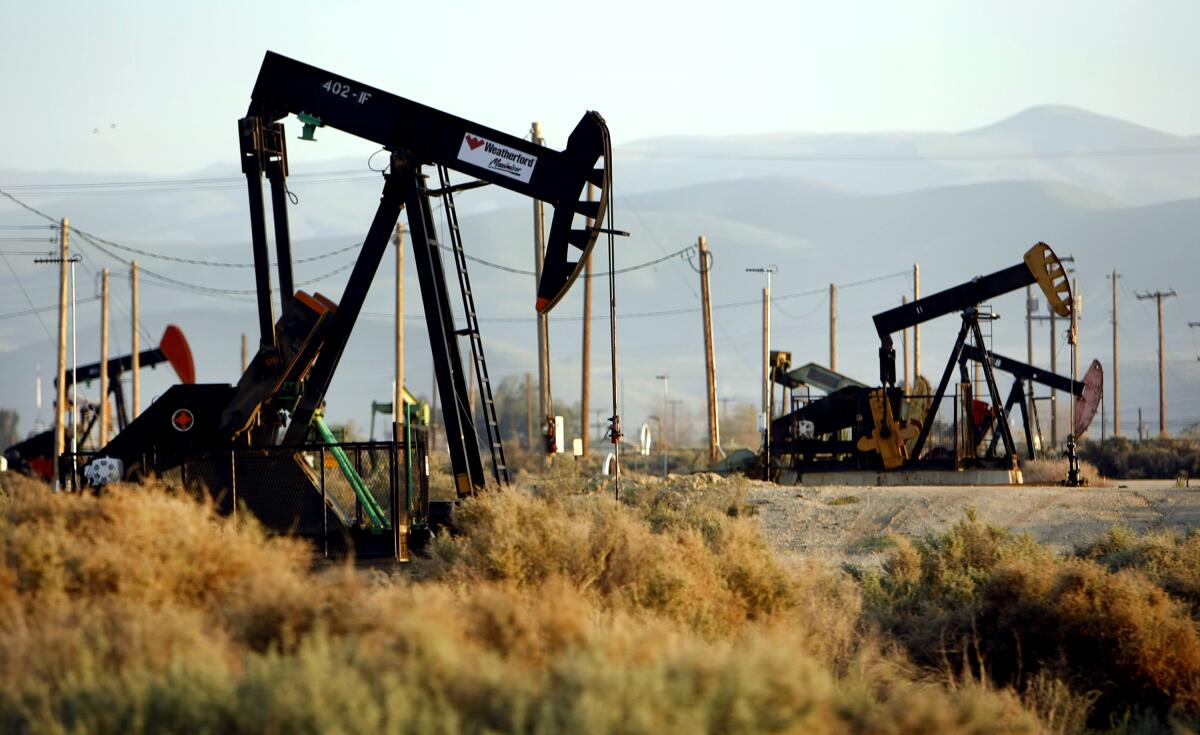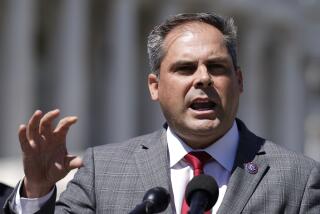Editorial: Welcome, Republicans, to the real, warming world

Faced with polls showing not only that most Americans want more done about climate change, but that a majority of Republicans feel the same way, a substantial number of GOP lawmakers are sounding a conciliatory note on the issue.
Sixty House Republicans have now joined a Conservative Climate Caucus, formed by Rep. John Curtis (R-Utah), that is willing at least to acknowledge the problem instead of labeling it a hoax, as President Trump did early on, or pretending that it’s temporary and that human actions haven’t contributed. Among its members are three Californians: Reps. David Valadao of Hanford, Michelle Steel of Seal Beach and Jay Obernolte of Big Bear Lake.
Republicans in both chambers appear ready to start talking — and go a little bit further. The Senate recently voted 92 to 8 for the Growing Climate Solutions Act, which was supported by the Citizens’ Climate Lobby. If it passes the House as expected and is signed by President Biden, it would ease the way for farmers and ranchers to earn and sell credits for reducing or mitigating greenhouse gas emissions.
That’s progress, as is the less divisive approach. But in truth, the climate caucus and its somewhat more solutions-oriented tone are far too little, coming this late in the game.
Curtis talks about how he has spent a lot of time trying to understand the science; he and other Republicans needed to be quicker studies because the world is running out of time to avert the worst effects of climate change. Worse, the caucus’ public statements indicate that its members won’t support reining in the use of fossil fuels in serious ways, as climate scientists insist we must do. Instead, the caucus calls those sources of greenhouse gases part of the solution to the need for stable sources of energy.
The caucus’ other areas of interest — safe nuclear energy and carbon sequestration — are more promising, with caveats. If Republicans can somehow come up with a truly safe nuclear path, the nation will be all ears. Right now, however, “safe nuclear” rings a little bit like the oxymoron “clean coal.” And before any thought of expanding nuclear energy can occur, the country would first have to identify a place to store spent fuel rods and then figure out a foolproof way to transport them there.
The most stable forms of energy are the nearly infinite ones, such as solar and wind, not fuels that will eventually be tapped out (and that cause other environmental harms in their extraction). Nor does this country need to rely on foreign sources to maintain a steady supply of the sun.
It will be important for Republicans not to use this as a shield to convince America that they really do care about climate change and the increasingly frequent droughts, wildfires and extreme weather events, when in fact they aren’t willing to take tough steps to soften future blows. Any discussion of environmental reform that excludes a drastic reduction in the use of fossil fuels is just happy talk, not reality.
Nor is it helpful to complain, as Curtis does, that nothing we do will matter much as long as China emits more carbon than the United States. On a per capita basis, this country still produces more greenhouse gas emissions, and China has been making major strides toward clean energy.
For now, incremental change is better than none at all. The reality is that support from both parties will be needed to pass important new climate change laws, and so the help of Republicans is welcome in accomplishing that — as long as they don’t demand concessions on the move to clean, sustainable energy in exchange for supporting tree-planting. With the mounting evidence all around us, the GOP should not have to be dragged kicking and screaming into admitting that there is a climate crisis and that it will require serious and sometimes uncomfortable commitments from the nation.
More to Read
A cure for the common opinion
Get thought-provoking perspectives with our weekly newsletter.
You may occasionally receive promotional content from the Los Angeles Times.










